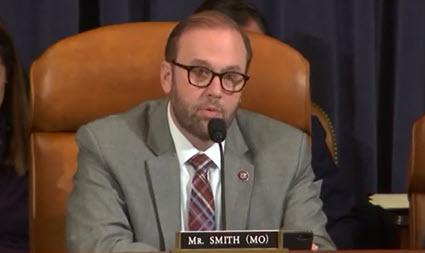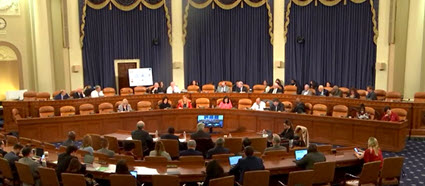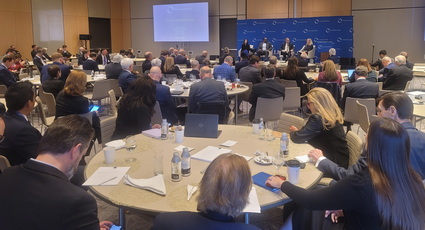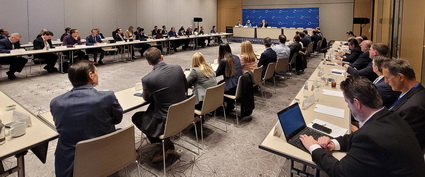
The House Ways and Means Committee unveiled a tax package today that includes measures impacting commercial real estate, and announced a legislative mark-up on June 13. (Politico and Tax Notes, June 9)
Committee Chairman Jason Smith (R-MO), above, Ways and Means Member Brad Schneider (D-IL), and committee staff will speak on June 14 during The Roundtable’s all-member Annual Meeting in Washington, DC at the Tax Policy Advisory Committee (TPAC) meeting.
GOP Proposal & CRE
Prospects for Passage

The proposals are a good indication of the priorities that House Republicans will bring to any bipartisan economic policy negotiations as the year unfolds.
# # #

Real Estate Roundtable members will meet next week to discuss policy issues, market conditions, and the significant economic pressures facing the office sector. In an interview with CNBC’s Squawk Box, Treasury Secretary Janet Yellen acknowledged the increasing stress on the office market this week, including the potential for further problems with banks with exposure to weakening CRE valuations.
Stress on Office Sector
Policymakers at Next Week’s Roundtable Meeting

The Roundtable will conclude its 2023 fiscal year this month and will release its annual report to the membership in early July.
# # #
(WASHINGTON, D.C.) — The Real Estate Roundtable’s Q2 2023 Sentiment Index dropped to an overall score of 41, three points lower than the previous quarter. Commercial real estate executives noted how remote work, high interest rates, operating cost escalations, and difficult price discovery has led to significant uncertainty in the post-pandemic office sector and reduced liquidity for nearly all commercial real estate asset classes. (See entire Q2 report)
Industry leaders also reported relatively healthy Q2 demand for industrial, multifamily, and strip center retail assets. Solid rental growth in multifamily, senior, student, and assisted living sectors was another positive trend reported by sentiment survey participants.
Roundtable President and CEO Jeffrey DeBoer said, “The commercial real estate market is at the center of a major transition. Maturing office loans in particular face a new environment of higher operating and financing costs, much tighter bank lending requirements, and uncertainty in business space needs.”
“However, while there is relatively good current news from non-office CRE sectors, the combination of reduced liquidity, increased costs, and post-pandemic business uncertainty threatens to spread to these other sectors as well—and potentially cause great damage to communities, jobs, and the economy. Federal financial institution regulators must act quickly to provide greater supervisory flexibility—as they did in 2009, 2020, and 2022—to allow lenders and borrowers to responsibly restructure the large amount of maturing commercial real estate loans.”
“Businesses and individuals need more time to transition their space needs to the post-pandemic economy. Greater certainty in demand will allow commercial real estate markets, particularly the office sector, to stabilize and revert to its dominant position as the source for local budget revenue. In addition to regulatory flexibility, positive public and private action to encourage in-person, return-to-work policies is needed, where appropriate. As some buildings will need to be reimagined entirely, policy reforms are needed to encourage those buildings to convert to other uses such as housing,” DeBoer added.
The Roundtable’s Sentiment Index—a measure of senior executives’ confidence and expectations about the commercial real estate market environment—is scored on a scale of 1 to 100 by averaging the scores of Current and Future Economic Sentiment Indices. Any score over 50 is viewed as positive.
The Q2 Sentiment Index topline findings include:
Looking to the future, 48% of survey participants stated general market conditions will be more favorable a year from now—although only 20 percent of respondents believe asset values will be more favorable in one year.
Data for the Q2 survey was gathered in April by Chicago-based Ferguson Partners on The Roundtable’s behalf. See the full Q2 report.
The Real Estate Roundtable brings together leaders of the nation’s top publicly-held and privately-owned real estate ownership, development, lending and management firms with the leaders of major national real estate trade associations to jointly address key national policy issues relating to real estate and the overall economy.
# # #